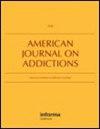Sexism and alcohol-related problems among women: The role of social anxiety and coping motivated drinking
Abstract
Background and Objectives
Experiencing sexism is related to more alcohol-related problems, presumably via drinking to cope with negative affect associated with experiencing sexism. Yet no known studies have directly tested whether the relation of sexism to alcohol problems occurs via relevant negative emotions and drinking to cope with negative emotions. Given that sexism is a type of negative evaluation, social anxiety may be one type of negative affect that plays a role in sexism's relation with drinking behaviors.
Method
This study tested whether sexism was related to alcohol-related problems via the serial effects of social anxiety and coping-motivated alcohol use among 836 cis-female undergraduates who endorsed past-month alcohol use.
Results
Past-year experiences with sexism were positively correlated with coping and conformity-motivated alcohol use, alcohol problems (but not peak estimated blood alcohol content, eBAC), social anxiety, and depression. After statistically controlling for depression and peak eBAC, sexism was indirectly related to alcohol problems via the serial effects of social anxiety and drinking motives (coping, conformity).
Discussion and Conclusions
Results highlight the important role of social anxiety and drinking to cope with negative emotions and to fit in with peers who drink in relation of sexism with alcohol-related problems.
Scientific Significance
This is the first known study to find that experiences of sexism are related to alcohol problems via the serial effects of social anxiety and coping and conformity-motivated drinking. This is also the first known study to find that sexism is related to more conformity-motivated drinking.

 求助内容:
求助内容: 应助结果提醒方式:
应助结果提醒方式:


